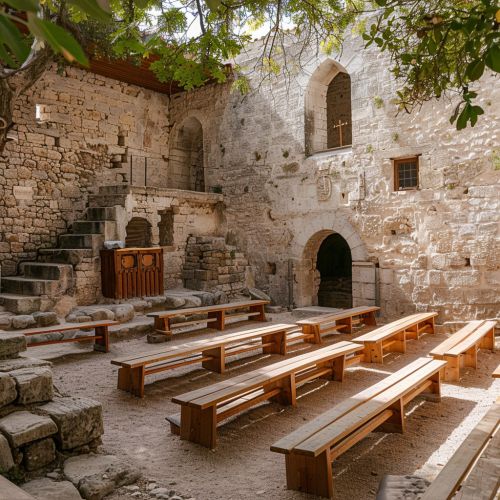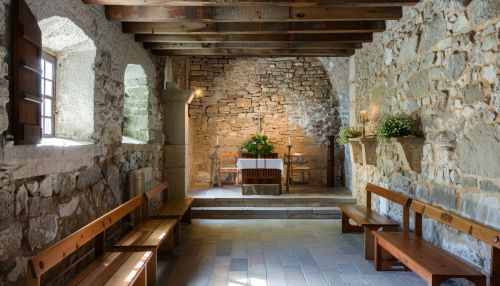Church
Origins and Etymology
The term "church" is derived from the Greek word "ekklesia", which refers to an assembly or gathering of people. In the Christian context, it is often used to denote a group of believers or a place of worship. The word "church" in English is a translation of the Greek word "kyriakon", meaning "belonging to the Lord".
Historical Development
The concept of the church as we know it today has undergone significant evolution throughout history. The earliest forms of Christian worship did not take place in dedicated church buildings, but rather in homes, or in Jewish worship places like the Second Temple in Jerusalem or synagogues.


The shift from home-based worship to dedicated church buildings began in the 3rd century CE, when Christianity was legalized in the Roman Empire. This led to the construction of large, public buildings for worship, often called basilicas. These buildings were typically rectangular in shape, with an apse at one end where the altar was located, and were often adorned with mosaics and frescoes depicting biblical scenes.
Architecture
Church architecture has varied greatly over the centuries, reflecting changes in liturgical practices, aesthetic preferences, and cultural contexts. Early Christian churches were often simple and utilitarian, while later periods saw the development of more elaborate styles such as Romanesque, Gothic, Renaissance, and Baroque.
Church Governance
The governance of the church varies among different Christian denominations. Some churches, such as the Roman Catholic Church and the Eastern Orthodox Church, have a hierarchical structure with a single leader at the top (the Pope and the Patriarch, respectively). Other churches, such as many Protestant denominations, have a more decentralized structure, with individual congregations governing themselves.
Role and Function of the Church
The church serves multiple roles in the Christian faith and in society. It is a place of worship, where believers come together to participate in liturgical services, pray, and receive the sacraments. The church also serves as a community center, providing a space for fellowship, education, and charitable work. Additionally, the church plays a significant role in societal issues, advocating for justice, peace, and moral values.
